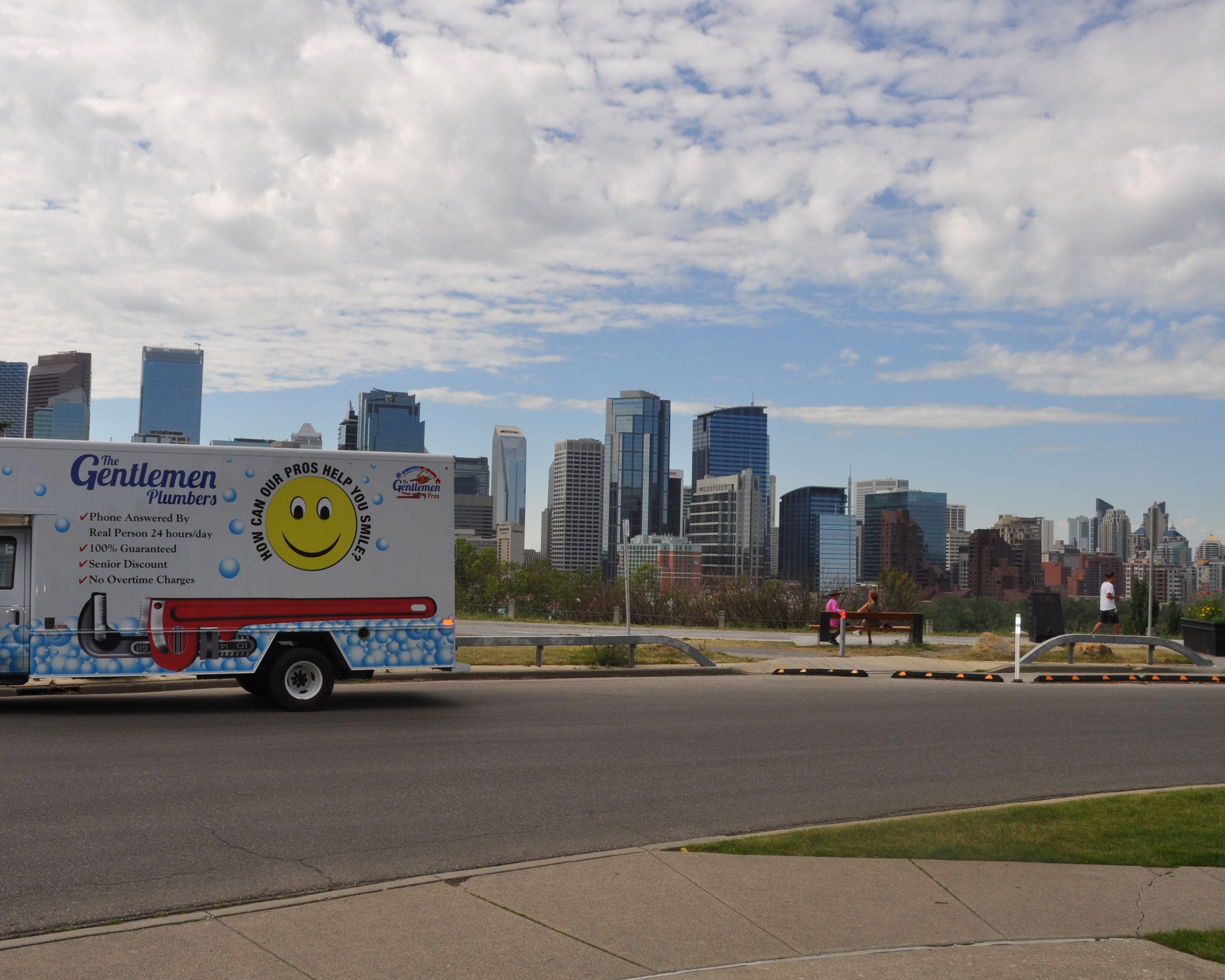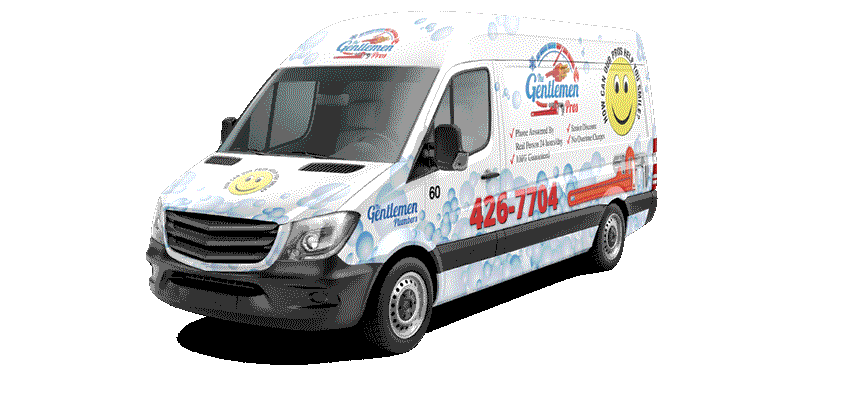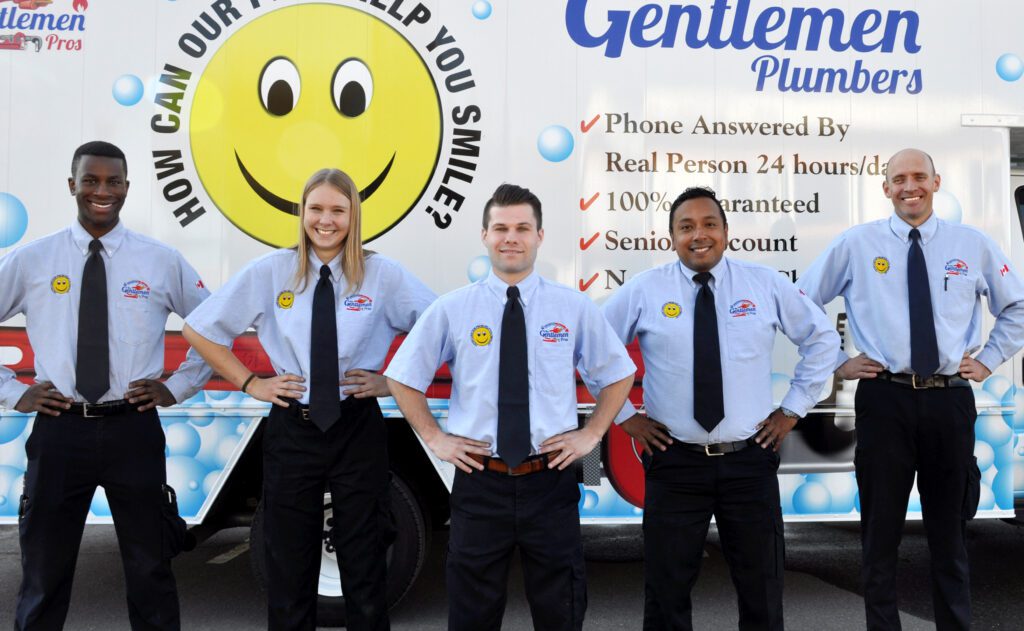
Same Day Service Since
2001
Call The Gentleman Pros Now!
(403) 879-1759

Things That Should Never Ever Go Down Your Drain
Dealing with clogged pipes is a smelly nasty job and if you need to get a plumber, expensive. Luckily, there are several things you can do, or in this case don’t do, to stop your pipes from clogging up. A tip, often the first hint you have a clog, or one is forming, is a terrible smell coming from your drain. You know that smell, we all do.
These items should never go down your drain:
Food and scraps
In general, you should never put food waste down the drain. In addition to causing blockages, food will start to smell very unpleasant as it decomposes.
More specifically, never put:
Coffee grounds – they clump together when wet and can cause a blockage.
Egg shells – their porous nature make them ideal to bind fats, oils, food waste, and other items to create large blockages.
Fats, oils, and grease – as they cool they become solid. When solid they will stick together and trap other foreign bodies in them creating “fatbergs”. These can clog your plumbing and the sewer system if they make it out of your house. Interesting fact, they need to be manually broken down by sewage workers.
Flour – flour and water mixed together is basically glue. It can stick to your pipes and collect other material which over time cause a blockage
Mashed potatoes – another glue like substance. See flour.
Pasta and rice – dried pasta and rice will stick to your pipes and then expand when it comes in contact with the water flowing through the drain.
Bones – not even with a garbage disposal. They gum up the works, dull your disposal’s blades, and can get completely stuck. Also, bones are often accompanied by animal fat that can congeal in the drain. See fats, oils, and grease.
Produce stickers – you know that sticky bit that allows them to stick to produce, well it also lets them stick to pipes and filters.
Hot wax – when you pour hot wax down the drain it solidifies when it hits the water in the drain or when the wax starts to cool. You end up with big problems then!
Bathroom items
Bathrooms are a busy place and their drains are prime places for clogs. We’ve all fished hair clogs from our drains. So will start our list with …
Hair – it will gather together and build a little nest in your pipes, trapping other objects and creating a huge smelly mess (I speak from personal experience).
Cotton balls and swabs – they expand — a lot — when wet and get sticky attracting other things, which all together can cause a clog. Also never flush cotton swabs down the toilet. They can wedge sideways in the toilet drain and catch solids, causing a clog.
Dental floss – it isn’t biodegradable and should be thrown in the trash. Over time strands of floss can build up in your pipes and tangle together causing a blockage.
Hazardous waste
Seems like a no brainer right. But it isn’t necessarily because these products will cause a blockage, it’s because they can damage your pipes and potentially seep into your community’s drinking water and the ecosystem. For example, medications and water soluble paint, the public water system can’t filter out the chemicals in these products and they’ll leak into your drinking water and local environment.
Hazardous waste includes:
Solvents and corrosive materials – they can linger in your pipes and cause damage by eroding the surfaces. Even flushing down large amounts of water alongside the liquids doesn’t stop this from happening. Damaged pipes can be very costly to fix, so don’t run the risk.
Flammable or explosive substances – these can react with other elements in your pipes and can create a toxic gas or become too hot and combust.
Paint – there are concerns that paint could strain the public water system and put public health at risk. Most municipalities consider it hazardous waste and it must be disposed of accordingly.
Medication and drugs – probably won’t cause a blockage but filtering systems can’t separate out the chemicals in the medication and these chemicals could put public health at risk.
Harsh cleaning products – because they contain harsh chemicals which our public water system can’t filter out. Also, please see solvents and corrosive materials and flammable or explosive substances.
Chemicals – because our public water system can’t separate out some of the chemicals from our public water supply. Also, please see solvents and corrosive materials and flammable or explosive substances.
Many of these tips are common sense, but we’ve all been guilty of “just this time” for the sake of convenience. You’d be surprised how many times “just this time” happens and you end up with a clogged drain and your plumber coming for a visit. If you are diligent in using the above tips, you will notice a reduction in clogs and smelly drains.



